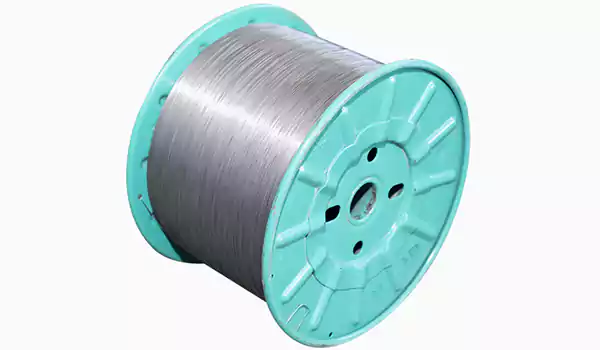
Selecting the correct piping solution for a job calls for clarity about its specs and real-world uses. Routine specs refer to metal grade, cross-section, span, and tolerance ranges. Considerations like maximum pressure, thermal endurance, and rust protection determine pipe suitability across industrial, commercial, and home settings. Piping systems are used in erection projects, manufacturing plants, infrastructure networks, water and gas delivery, waste removal, framework support and tailored industries
- Understanding the project's exact requirements is vital to select the correct pipe
- Study applicable standards and codes for exact specifications of metal piping
- Pick materials according to load pressure, thermal stresses and corrosive exposure
Tubular Steel: Strengthiness, Endurance, and Multipurpose Use
Structural tube steel boasts superior robustness and is widely selected for numerous industrial, structural and commercial projects. Enhanced durability is rooted in manufacturing processes and material selection. Manufactured from drawn or welded steel sections, they demonstrate strong resistance to rust, abrasion and impact, giving prolonged life in tough settings. Shapeable tube steel makes possible an array of profiles from basic circles to sophisticated geometries tailored to project specifications. Across large-scale infrastructure, building frameworks and intricate mechanical systems, tube steel's combination of robust strength, long endurance and design flexibility secures its essential role in contemporary construction and manufacturingPerforated Metal Mesh for Elevated Security and Safety
Expanded metal mesh is commonly specified for projects that seek a balance of solid security and enhanced safety. With an open-cell design it maintains visibility and forms a deterrent against access and potential threats. You can tailor aperture patterns and sheet thickness to fulfill specialized criteria
- High durability of expanded metal protects against impact forces, vandalism and extreme weather
- Also, quick installation and low maintenance encourage widespread uptake in various sectors
- When securing critical systems and protecting staff in industrial environments, expanded metal acts as a broad protective measure
Industrial Uses of Metal Steel Mesh
Metal steel mesh is heavily employed in industrial settings for its output strength, resilience and functional versatility. It yields a resilient meshwork for filtering, screening, reinforcing and defensive uses. Concrete structures often employ steel mesh reinforcement to bolster tensile strength and lessen cracking tendencies. Similarly, steel mesh is implemented in bridges and tunnels to augment structural support and handle loads. Steel mesh plays an important role in industrial screening and filtration in manufacturing, where a fine weave isolates substances of different particle sizes for sieving and cleaning. Steel mesh also serves in protective roles like guardrails, fencing and enclosures to prevent unauthorized entry and safeguard hot-rolled steel plate people. Steel mesh's tensile robustness equips it to resist impact and stress, providing trustworthy protection in strenuous scenarios
Structural Deployments for Metal Tubes
The natural strength of metal pipes renders them valuable in a wide array of structural roles. Their versatility enables erecting sturdy frameworks that handle weight-bearing duties in different sectors. Across towering buildings, bridge systems and subterranean pipe runs, metal pipes form a structural backbone and handle severe environmental loads. Corrosion resistance combined with straightforward fabrication boosts their relevance in current building methods
Choosing the Correct Tube Steel for Your Build
When undertaking construction or manufacturing, picking correct tube steel matters greatly. Offering strength, endurance and manageable weight, tube steel is ideal across many application types. But multiple available grades and specs can render tube steel selection somewhat difficult
- To achieve project goals, review intended use, load criteria and ambient conditions
- Aspects like wall thickness, diameter and material grade directly affect tube steel performance
A robust structural application may require heavy-gauge, high-yield tube steel with thick walls whereas lighter-duty uses such as bicycle frames benefit from thinner-walled, lightweight steel
Engage expert engineers or proven suppliers to help pick the right tube steel for the specific project
Upsides of Expanded Metal in Building Projects
Expanded metal presents diverse practical advantages and efficiency gains for construction tasks. Lightweight properties make installation simpler and reduce on-site labor expenditures. Furthermore, the open weave increases airflow and aids drainage, minimizing moisture problems. Its durability makes it suitable for high-resistance applicationsGrasping Metal Connection Methods
Joining methods for pipes are central to plumbing systems and ensure leak-free passage of liquids and gases. Deciding on a connection involves pipe diameter, construction material, pressure rating and the use case. Standard metal pipe connections include threaded, flanged and welded options that vary in strength and sealing performance. In threaded systems male and female threads are screwed together, flanged systems use bolted flat surfaces to seal, and welded systems fuse pipes using heat and pressure. Familiarity with the properties of each connection helps ensure a functional, leak-resistant piping installationDIY Applications for Metal Steel Mesh
Steel mesh is robust, long-lasting and flexible, fitting many do-it-yourself projects. Open and interconnected, the structure is perfect for fences, screening and decorative installations. Furthermore, its light weight and workability make it favored by beginners and seasoned DIYers alike
- Consider metal mesh as a material for your next hands-on project
Metallic Pipes: From Sanitary to Structural Support
Metal pipes contribute indispensably to today's infrastructure and building practices because of their robust strength, long life and flexibility. Originally plumbing-focused, metal pipes now play key parts in structural support and reinforcement. From structural foundations to pipelines for water and gas, metal pipes contribute vital operational roles within modern systems. Toughness enables them to withstand heavy pressures and loads while corrosion resistance secures long-term function. Moreover, metal pipes are readily shaped and adapted into different configurations to suit a wide variety of applications
Expanded Metal: Creative Designs and Functional Uses
Expanded metal brings distinctive design potential together with reliable functional performance. The open weave supports diverse uses including aesthetic architectural elements and industrial protective systems. Because it is strong, expanded metal can handle significant loads while remaining visually attractive
- Furthermore, the open weave improves air circulation and makes it ideal where thermal regulation or heat dissipation is key
- From construction and manufacturing to transportation and aesthetic design, expanded metal's applications are extensive